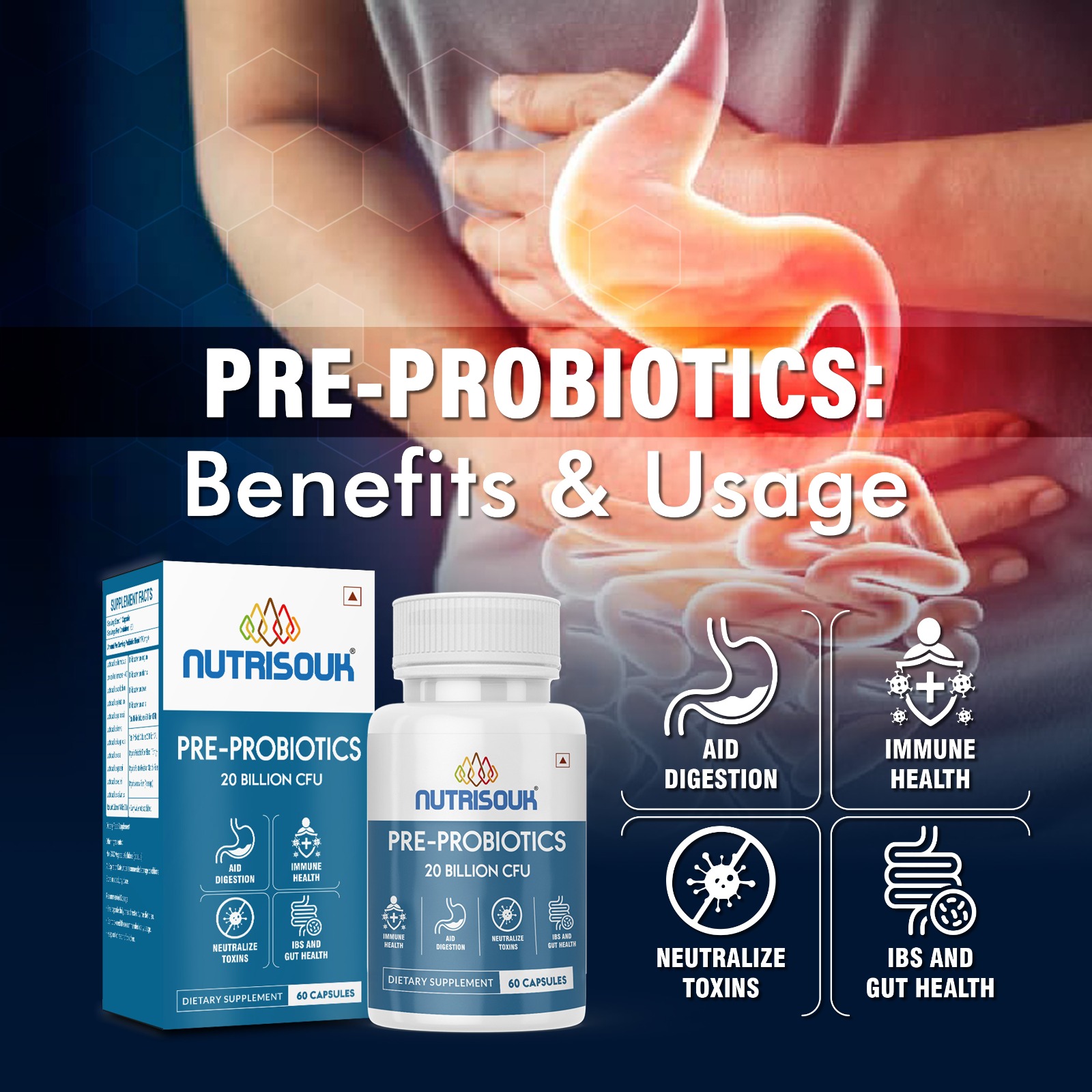Probiotics are live microorganisms, typically bacteria or yeast, that provide health benefits when consumed in adequate amounts. They help maintain or restore beneficial gut flora, which is crucial for digestive health, immune function, and even mental well-being.
Prebiotics, on the other hand, are non-digestible food ingredients, mainly fibers, that promote the growth and activity of beneficial bacteria in the gut. They serve as food for probiotics, enabling them to thrive and multiply.
The Role of Prebiotics and Probiotics
- Digestive Health:
Probiotics help maintain a healthy balance of gut bacteria, crucial for optimal digestion. They prevent and treat diarrhea, including antibiotic-associated diarrhea.
Prebiotics stimulate the growth of beneficial bacteria such as Bifidobacteria and Lactobacilli, enhancing gut health and function.
- Immune System Support:
A significant portion of the immune system resides in the gut. Probiotics enhance the gut’s immune response to infections and reduce inflammation.
Prebiotics improve the gut environment, which indirectly supports immune function by promoting a healthy gut flora.
- Mental Health:
Emerging research suggests a link between gut health and mental well-being, often referred to as the gut-brain axis. Probiotics may help alleviate symptoms of depression and anxiety.
Prebiotics also play a role by fostering a gut environment conducive to producing neurotransmitters like serotonin.
- Weight Management:
Probiotics can influence the body’s metabolism and may help in weight loss and management by altering the gut microbiota.
Prebiotics support this process by promoting the growth of bacteria that regulate fat storage and appetite.
Who Should Take Prebiotics and Probiotics?
- Individuals with Digestive Issues:
People suffering from conditions like irritable bowel syndrome (IBS), inflammatory bowel disease (IBD), constipation, or diarrhea can benefit significantly from probiotics and prebiotics.
- Those on Antibiotics:
Antibiotics can disrupt the natural balance of gut bacteria. Taking probiotics during and after antibiotic treatment helps replenish beneficial bacteria and prevent antibiotic-associated diarrhea.
- People with Weakened Immune Systems:
Individuals with compromised immunity, such as the elderly or those undergoing chemotherapy, can benefit from the immune-boosting properties of probiotics and prebiotics.
- Health Enthusiasts:
Anyone looking to enhance their overall health, including digestive health, immune function, and even mental well-being, can consider adding prebiotics and probiotics to their diet.
When to Take Prebiotics and Probiotics?
- Timing:
Probiotics are best taken on an empty stomach when the stomach acid levels are lower, which may increase the chances of the probiotics reaching the gut alive. This is usually first thing in the morning or just before bedtime.
Prebiotics can be taken at any time, with or without food, as they are not affected by stomach acid.
- Consistency:
Regular, daily intake is crucial for both prebiotics and probiotics. Consistency ensures a steady supply of beneficial bacteria and the necessary nutrients to support them.
Best Strains for a Pre-Probiotic Supplement
- Probiotics:
Lactobacillus acidophilus: Known for its role in supporting digestion and immune function.
Bifidobacterium bifidum: Helps maintain a healthy balance of gut bacteria and supports the immune system.
Saccharomyces boulardii: A yeast probiotic effective in treating and preventing diarrhea.
Lactobacillus rhamnosus: Supports gut health and has potential benefits for mental well-being.
Lactobacillus plantarum: Known for its ability to help reduce bloating and digestive discomfort.
- Prebiotics:
Inulin: A type of fiber found in many plants that promotes the growth of beneficial bacteria.
Fructooligosaccharides (FOS): Short-chain prebiotics that enhance the growth of beneficial bacteria like Bifidobacteria.
Galactooligosaccharides (GOS): Promote the growth of Lactobacilli and Bifidobacteria.
Resistant Starch: Found in foods like green bananas and cooked-and-cooled potatoes, it supports beneficial bacteria growth.
Conclusion
Prebiotics and probiotics play vital roles in maintaining and improving gut health, which has a cascading effect on overall well-being. By understanding who can benefit from these supplements, the optimal times for consumption, and the best strains available, individuals can make informed decisions to enhance their health. Consistent use of quality prebiotic and probiotic supplements can lead to significant improvements in digestive health, immune function, and even mental health.


